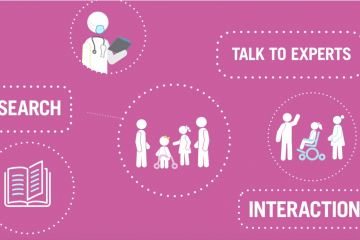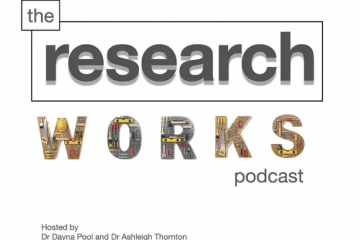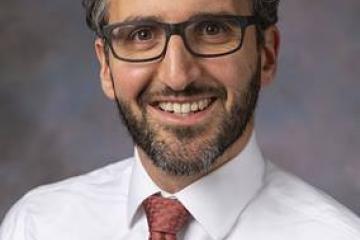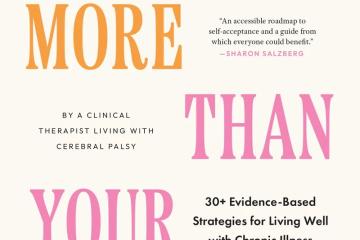Making Decisions During a Pandemic for Children with Cerebral Palsy
As a mother and a pediatrician, I’ve both felt the strain of pandemic parenting directly and indirectly. I’ve made decisions about my own family and sending our kids to daycare and school, and I’ve stayed up worrying about how parents are supposed to make these difficult choices with so little support.
Essential services like physical therapy, speech therapy, feeding therapy, and occupational therapy have been disrupted and this causes consequences for our children like spasms, outgrown braces, or developmental setbacks. Parents have less access to caregivers for their children and more stress about supplies and equipment that are difficult to get in normal times.
I worry also about the mental health of parents of children with CP. I know you are scared your child may get sick and be at higher risk for severe courses of COVID-19. I know you may feel angry or guilty about the situation being less than you’d hoped for your child.
While the struggles faced seem insurmountable, thinking through the risks and benefits of various aspects of care can help prioritize the needs of your child to develop an action plan. So first, let’s touch on the risks. Some children are at higher risk for severe illness if they get sick with COVID-19, and likely it’s the same children who may have been hospitalized for viruses in recent years.
One small study of children admitted to the pediatric intensive care unit with COVID-19 described that 40 out of 48 children had underlying conditions - most commonly technology use - ventilators, tracheostomies and feeding tubes. Notably, in this series the authors state, “It is important to emphasize that the overall burden of COVID-19 infection in children remains relatively low compared with seasonal influenza.”
Decision-making is very complex, and your primary care doctor or primary specialist can help by providing advice tailored to your specific situation. Currently, the most well-established risk factors include kidney disease, solid organ transplant recipients, cancer, obesity, serious heart conditions, sickle cell disease and type 2 diabetes. The CDC states that children with medical complexity — including those with CP — might be at higher risk.
When you have choices it is important to balance the risk of coronavirus with the risk of missing things. Adequate control of chronic conditions will decrease the risk should your child get sick. Skipping visits with a doctor to decrease exposure may backfire if your child’s condition is under poor control. Consider reaching out to your provider about telehealth or alternative visit options if you are concerned about exposures.
We have to balance the true but small risk of coronavirus with the true cost of extreme isolation for these children. Particularly if your local community transmission of coronavirus is low, activities like school, therapy sessions, and caregivers entering the home may be worth the exposure risk. In a child who needs physical therapy, delaying it or stopping it may cause pain, developmental setbacks, and sometimes contractures that require surgery. In a child with autism or behavioral issues, missing opportunities to be in developmentally appropriate social situations and work with special education professionals or therapists may lead to extreme regressions. Given some of what we know about the critical period for language development, children who have hearing problems or speech problems that go unaddressed may miss important times for development.
Your wellbeing matters too. Parents sometimes act as martyrs, but your children depend on you staying physically and emotionally well to meet their needs long-term. These are examples where the risks of missing things are very likely and potentially very significant.
So in a sense we are weighing IF your child gets sick and IF your child experiences a rare outcome against the cost your family will likely pay from remaining extensively isolated. Without knowing you and your family, I can’t say what the risk is or what the correct answer is. This is what conversations with your doctors are for.
If you don’t feel confident talking with your doctors about these topics, consider reaching out to a complex care program for an appointment (remotely or in person). Some of the available programs are designed to take over primary care, but many of them, particularly in big academic centers, are accustomed to working as consultants and providing advice while encouraging your ongoing relationship with your primary care doctor. These are not easy decisions, but we wouldn’t recommend and prioritize these services if they weren’t truly important to your child.
Please remember that, even if you are holed away protecting your family, you aren’t alone and there are always resources available to you.
Dr. Kelly Fradin gives parenting and pediatric health advice on Instagram and is the author of Parenting in a Pandemic: How to help your family through COVID-19.
"Your wellbeing matters too. Parents sometimes act as martyrs, but your children depend on you staying physically and emotionally well to meet their needs long-term."







